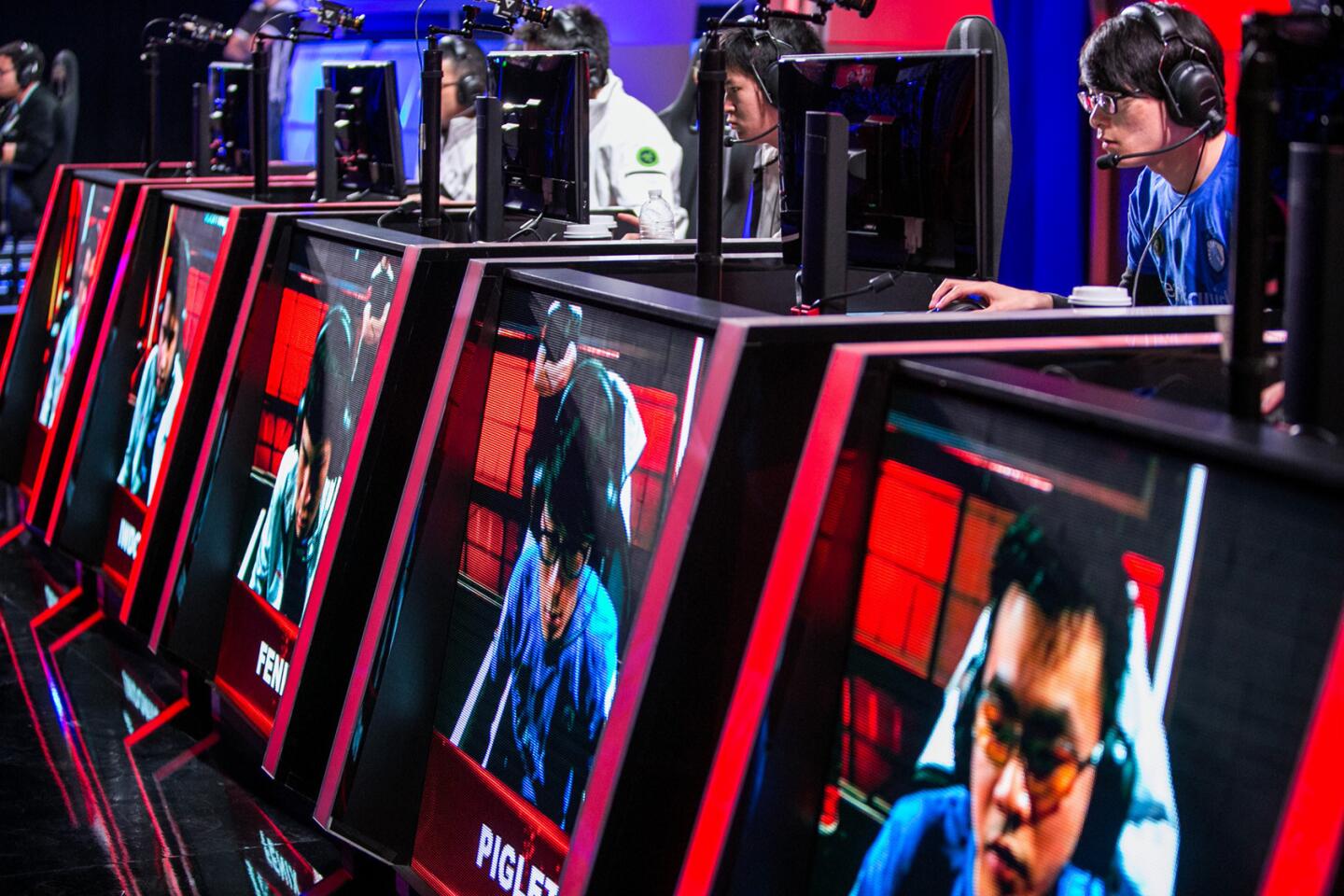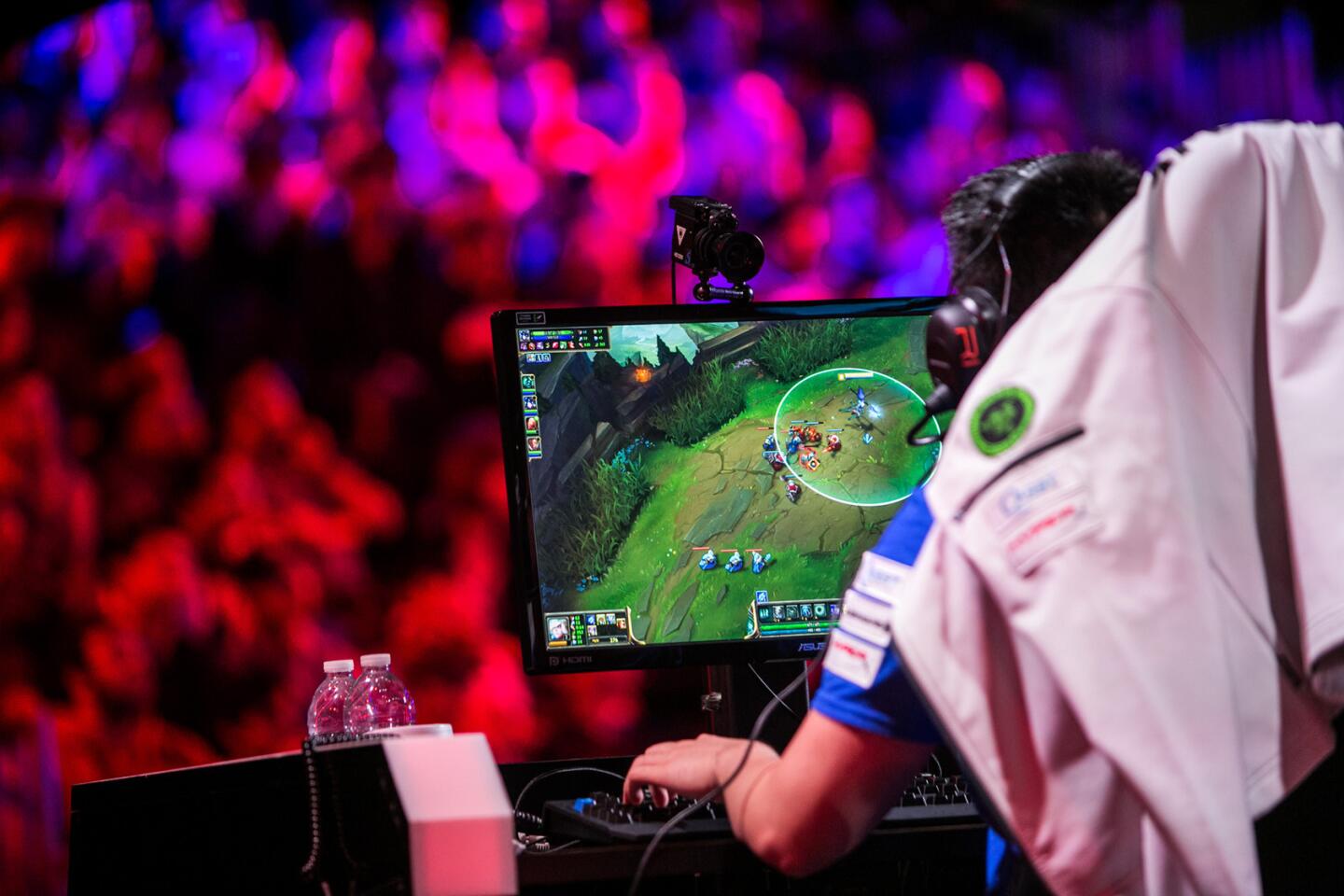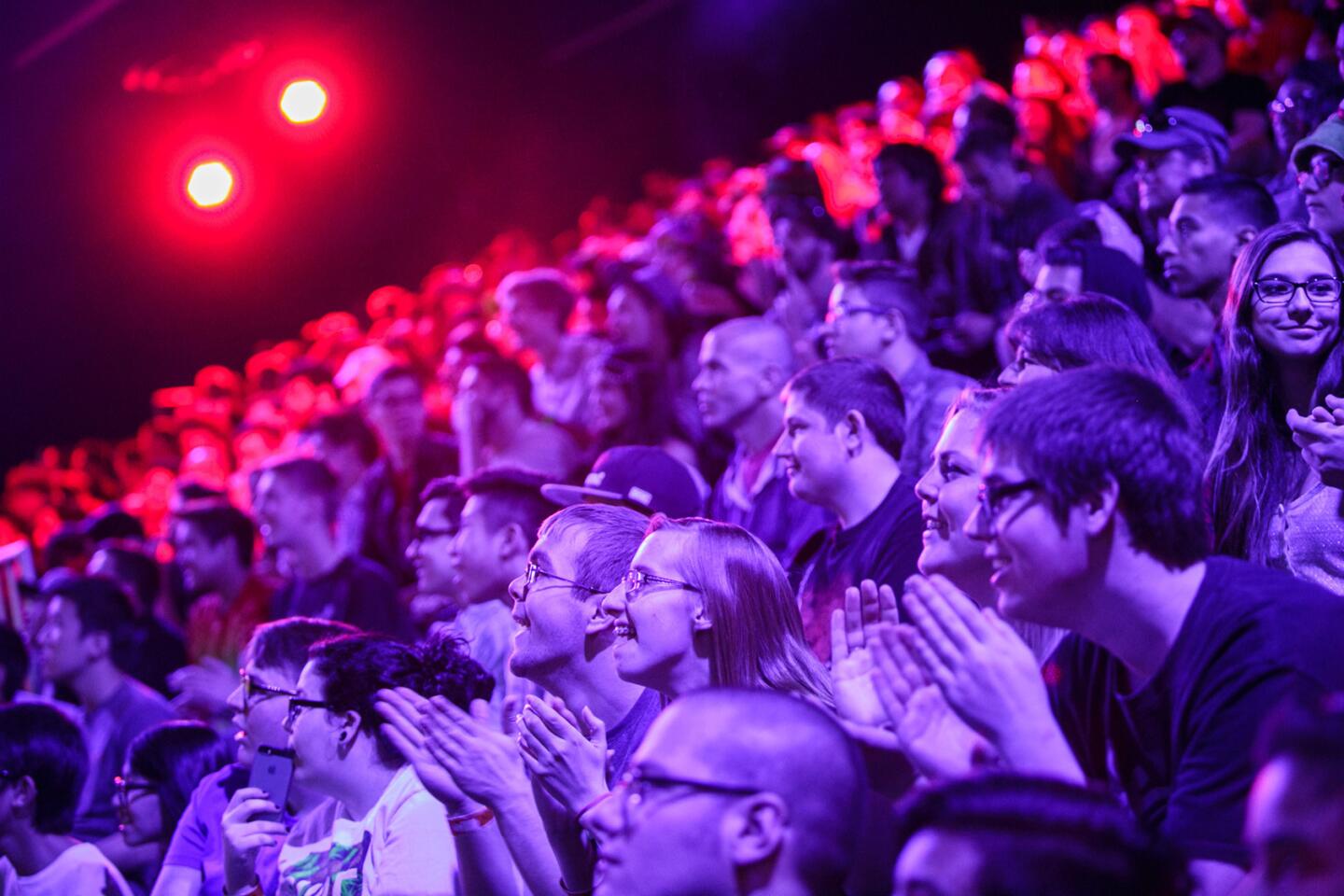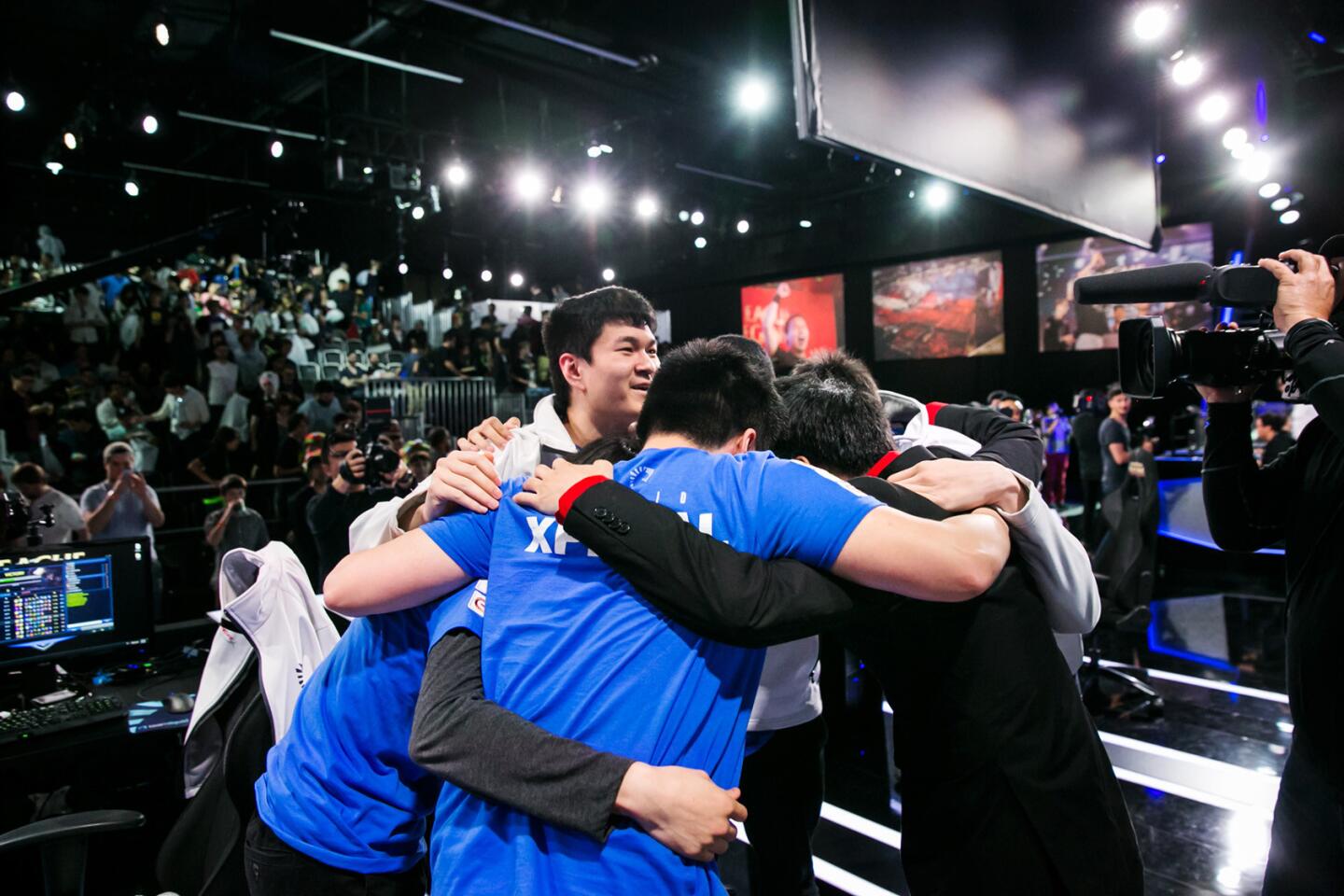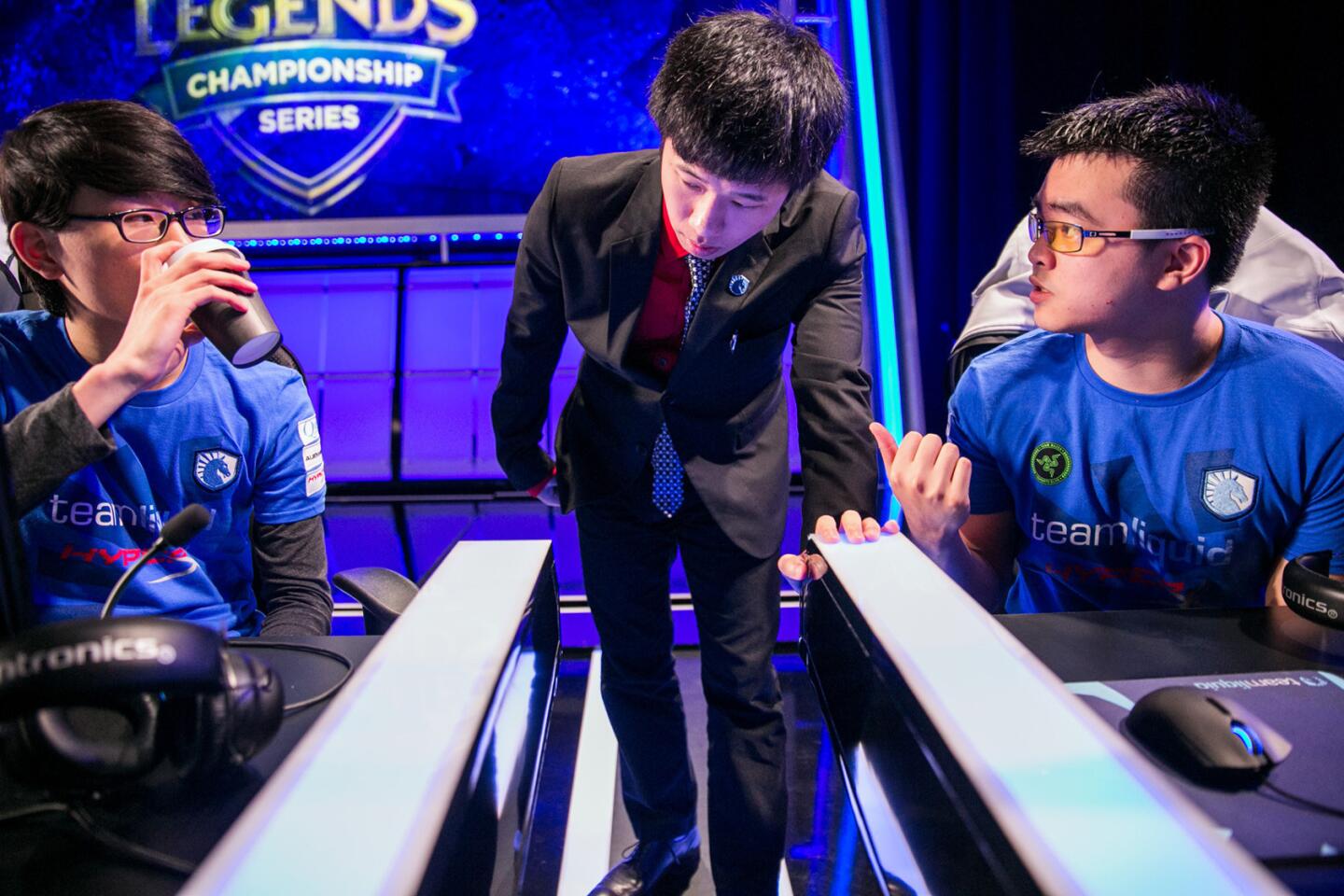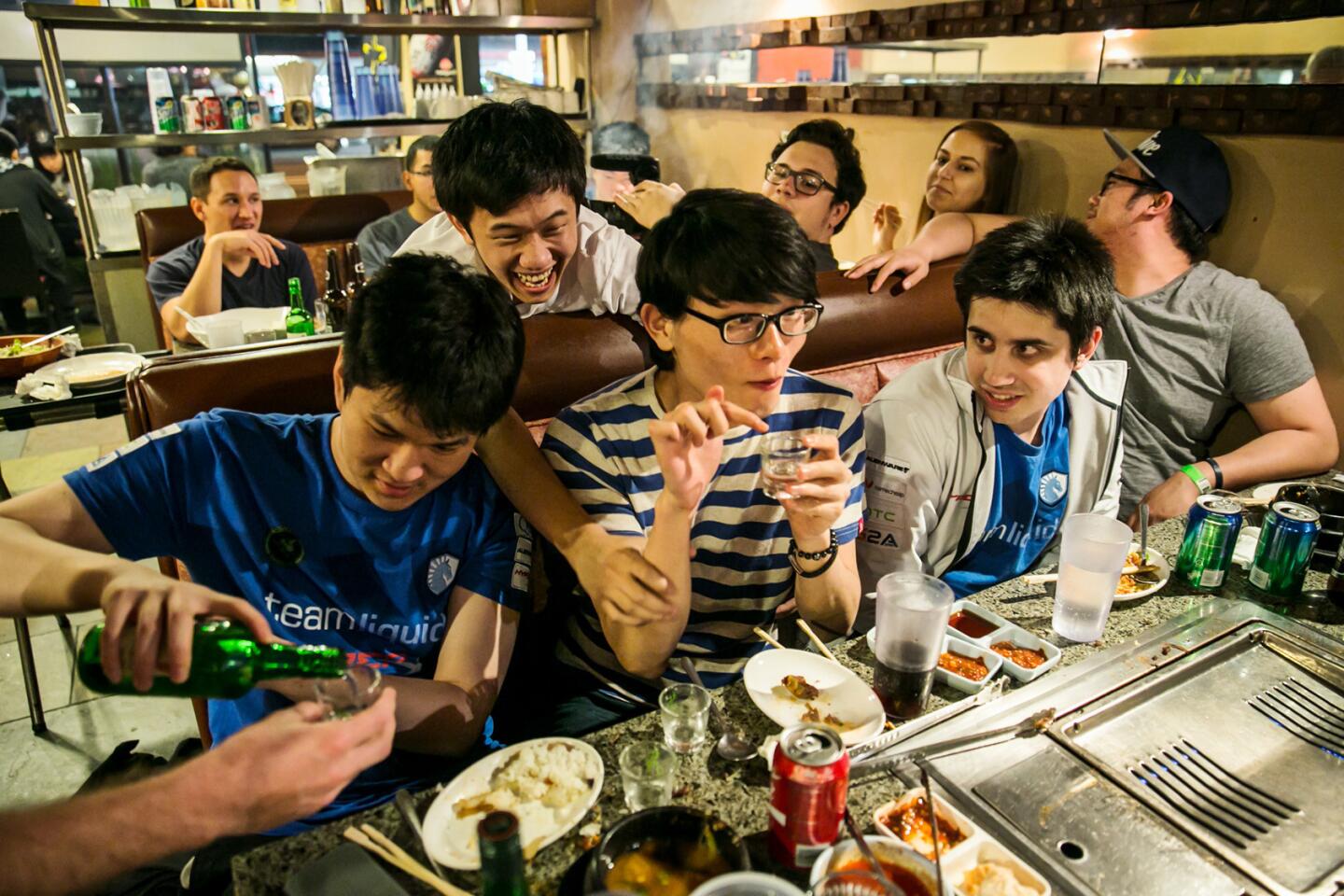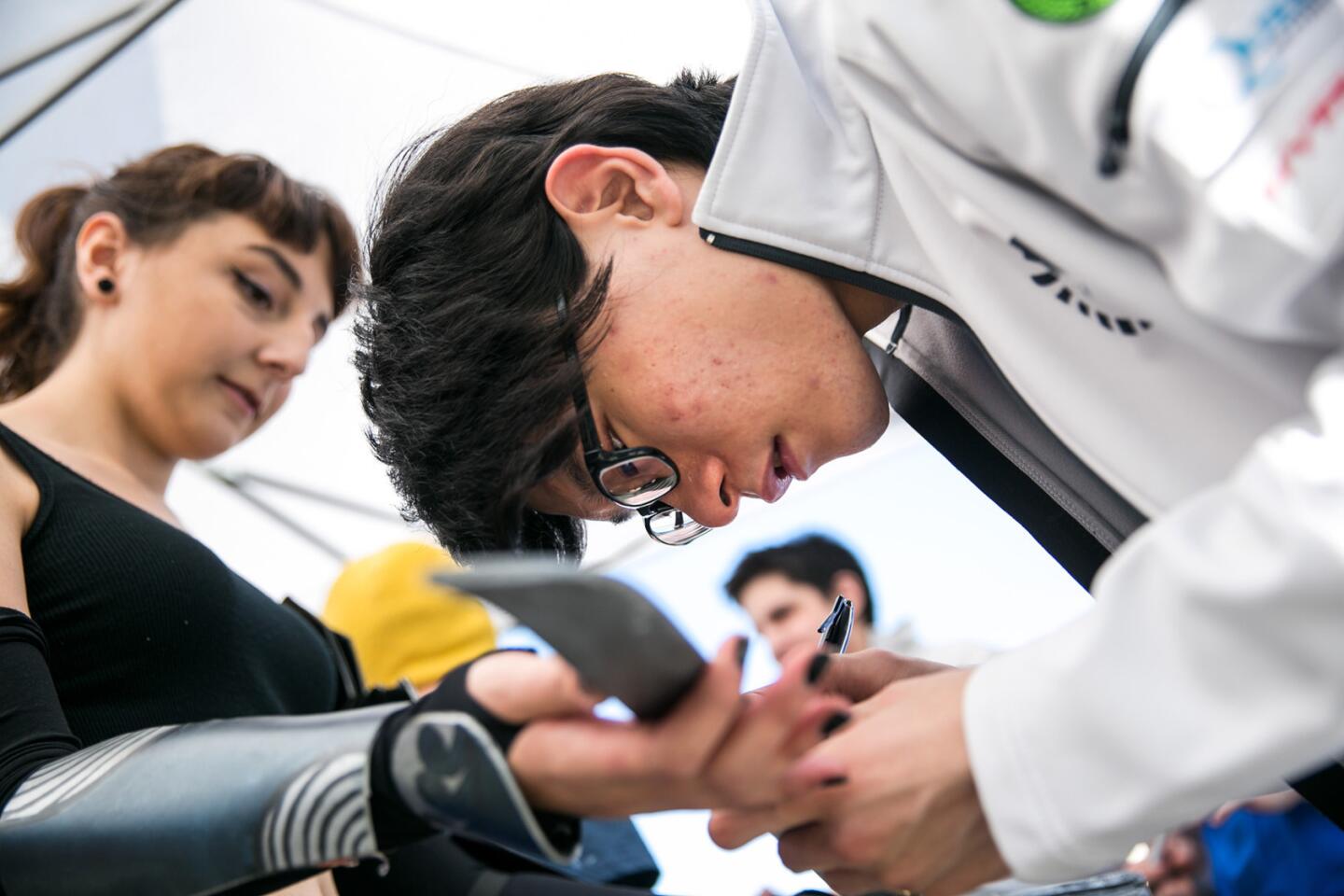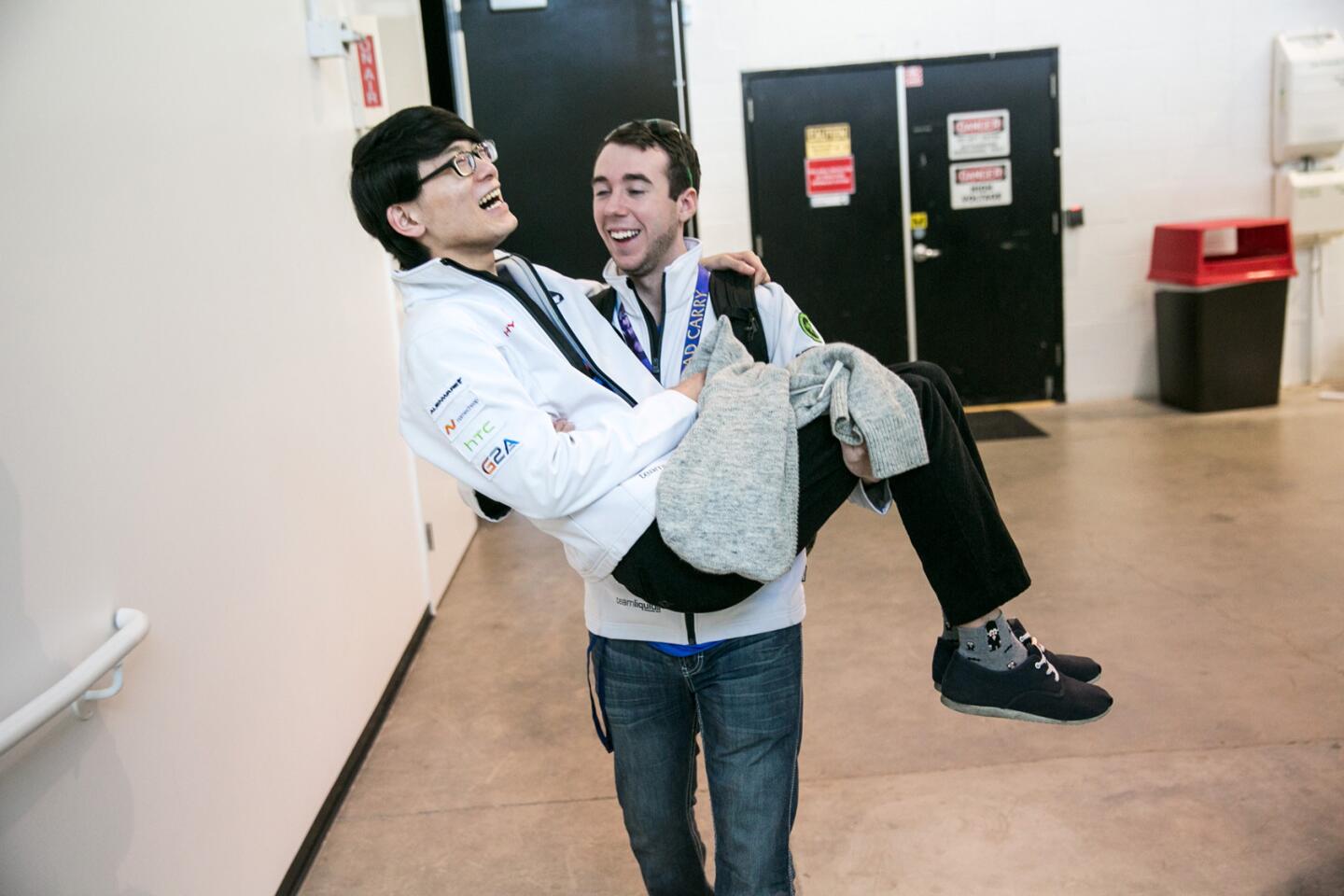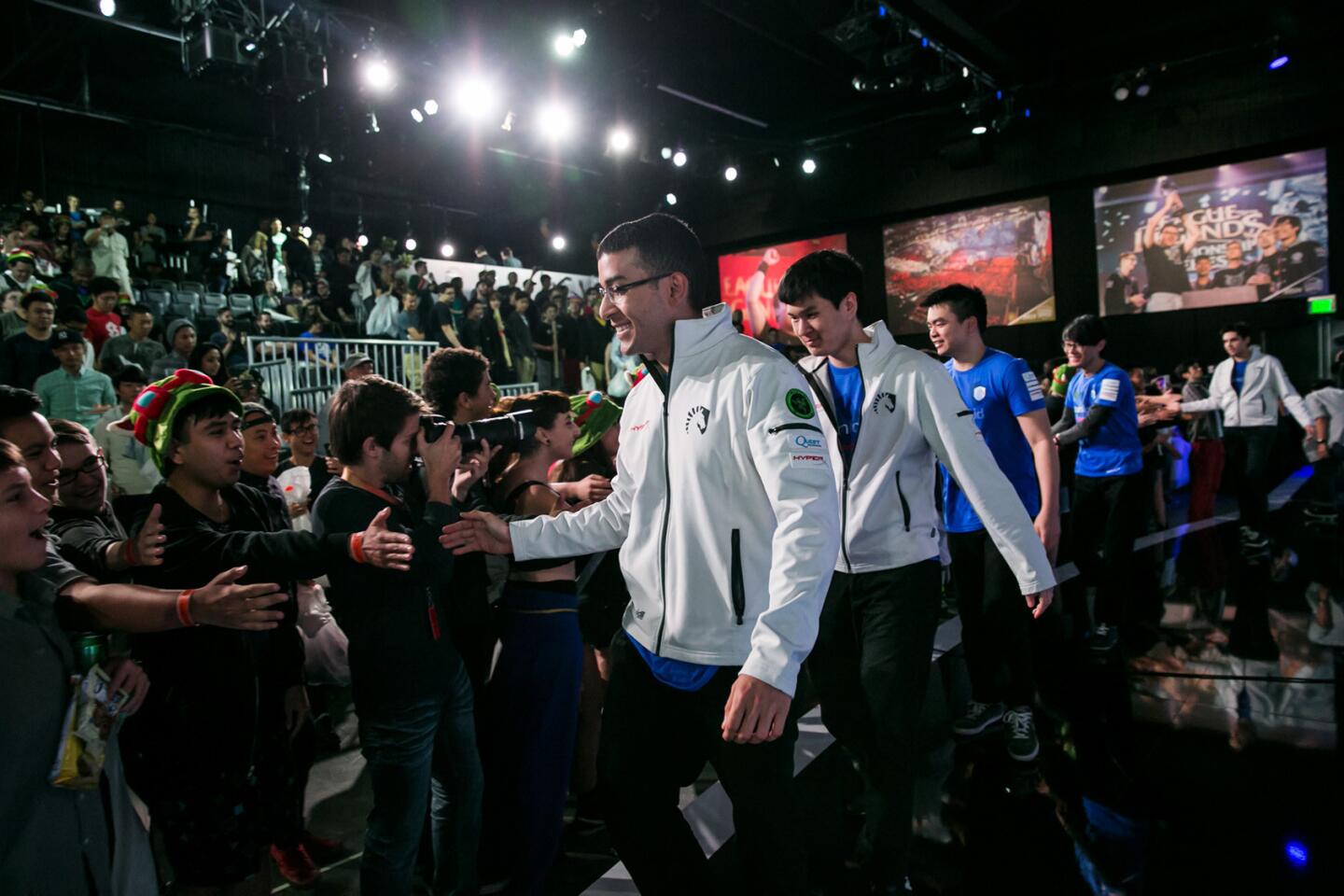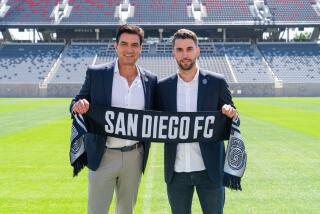Great Read: Even in the minor leagues, video game team is living the dream
After taking a red-eye out of Georgia to check on his employees, Ethan Smith arrives in the late morning at the house on a quiet street in Santa Monica. He stops in the foyer and laughs at the state of the place.
It looks like a frat house. Day-old breakfast sits in a pan on the stove. Spillage from fast-food cups forms sticky rings on the coffee table. Blinds cast the living room in darkness. It’s almost noon, and his employees are still asleep.
“I wanna get mad. I really do, but this is just the typical gamer lifestyle,” says Smith, co-owner of the Team Fusion video gaming team. “They’re smart guys and players, but they just can’t figure out where the trash goes.”
The lives of professional video gamers trying to make it in the big leagues aren’t always very pretty.
A little before 1 p.m., the “team mom,” who watches over the five players, grabs two packages of bacon, a box of pancake mix and a carton of eggs to begin breakfast. One by one, the teammates come to take a fresh stack off the top, each greeted by his gamer name.
“Good morning, Trance. When did you go to sleep?” Smith asks Lawrence Amador, a groggy 21-year-old.
Amador, wearing slip-on sandals with Pikachu-faced socks, slathers his pancakes with butter and takes a seat at his gaming desk in the next room. Half an hour later, Nien — real name Zach Malhas — fixes a plate in the exact time the Keurig brews a cup of coffee and greets Amador with a dap.
“What do you want with your pancakes, Chunkyfresh?” Smith asks Joshua Kesrawani.
Kesrawani, 18, hobbles in his pajamas to his computer and grumbles something about syrup and extra bacon. Another plate is prepared for Joshua Atkins — NintendudeX — who’s still asleep.
Choi Jae-hyun — Huhi — skips breakfast and streams a live feed of his monitor to hundreds of paying subscribers and fans, who watch on their phones while in school or at work as he does battle in the popular game “League of Legends.”
Many young gamers wish they could have unlimited hours of gameplay while all their life essentials are taken care of. The members of Team Fusion have found a way to live out this fantasy and make money while doing it.
“Many people look up to me; many people envy me. And if they had the chance, they would absolutely take my spot,” Amador says. “I live out their dream for them.”
But the dream means they have missed out on college and even high school and all the memories that go with those rites of passage. They’ve left their friends behind in their hometowns and forged a family with a team whose future is far from certain.
Soon they would play a final match that could see them joining the ranks of the gaming elite — or send them packing.
::
Smith and his co-owner, Alden Haight, hatched the idea for the team during a conversation in a Krystal burger joint in Columbus, Ga.
Haight, 19, and Smith, 20, knew each other through the popular online role-playing game “World of Warcraft.”
“We had been involved in the gaming community for a couple years, so we had the knowledge to get in early on a soon-to-be blossoming industry,” Smith says. “Gaming houses in Asia have figured out how to really make really successful companies. Why not us?”
The two shared chili cheese fries and ideas for 14 hours until they reached a plan for Team Fusion. These are not your average college students: With a mix of inheritance and real estate money made under the guidance of their parents, the two hired an 11-person staff and a team of five players.
The duo rented a 7,200-square-foot property in Santa Monica with two houses: one to work in, the other to house the team. By late October 2014, the team would destroy towers — and their opponents — on a mountaintop battlefield in “League of Legends.”
Some roles require quick reactions to duel others, which suit players like Malhas and Choi, who like to make flashy plays. Other roles, played by Amador and Atkins, require strategy and extensive knowledge of characters to coordinate the team.
“This team is like a family. Everybody has something that they’re good at, and we cover up for each other’s weaknesses,” Choi said. “Our balance makes it so we can pull a lot of things off and surprise our opponents.”
The players are provided with two meals a day and a full pantry of snacks. Once a week, they are treated to a meal at any restaurant they choose.
“I believe in a Google-like workplace where employees will work better if they are happy,” Smith says. “We provide a lot for them. But they put in the work, so I see it as a worthwhile investment.”
Salaries aren’t bad, either. Players in the minor leagues can make up to around $40,000 a year. A major-league contract can run toward $100,000, Smith says, or even higher with an endorsement deal.
Within eight months, Team Fusion has managed to climb to the top of its minor-league division, the Challengers Series. One more win would open the door to the 10-team North American League Championship Series. A loss might shut the doors of the gaming house.
“I wouldn’t call this the smartest investment I’ve ever made,” co-owner Haight says. “If we don’t make the LCS, I don’t know what we will do.”
::
Malhas knows that in the gaming world, at any moment you could win or lose.
This would be the 21-year-old’s fourth attempt to make it to the big leagues. He began to play competitively in late November 2011 with a team called Cloud 9 but left after it lost its first shot into the LCS. The team went on to become the second-ranked team in the country.
He reminisces about beating major-league players early in his career and worries that those memories will be all he’s left with.
“The only regret I will have if I never make it to the top will be that people never got to see how good I am,” Malhas says. “I just know I’m really damn good.”
For others, like Kesrawani, the final match will be their first attempt at cracking the major leagues.
In high school back in Las Vegas, Kesrawani would feign sickness to stay home and play video games. When his parents finally demanded that he return, he refused. At 15, he stopped attending school to play video games.
“I haven’t contacted my friends since I left school,” Kesrawani says. “For all they know, I’m dead.”
When he was offered a position on Team Fusion, he sat his parents down and said he was leaving home to join a gaming team. He left a week later.
“I think about my family all the time. Sometimes I just want to go home,” Kesrawani says. “But I’m here now, and this is my priority.”
::
No one cheers when the opposing teams enters the competition studio in Santa Monica. No tickets have been sold. Instead, studio cameras zoom around the arena to broadcast the finals to thousands of fans.
The Team Fusion players takes their seats at the row of computers. On the other side sits a team of relegated major-league players who now must compete with Team Fusion for a spot back in the big leagues.
The best-of-five match begins with crushing losses in the first round and second round for Team Fusion, which has come in too assured of its success. But the team manages to narrowly win the third round and easily finds victory in the fourth.
The final round lasts for almost an hour, with each team stealing a lead every few minutes. Then Team Fusion misplays one battle. Game over.
The players shake hands with their opponents and calmly collect their keyboards. Studio cameras fly in for close-ups, but the players reveal no emotions as they walk to their greenroom.
A few team staff members meet their return with red eyes, wondering about the security of their jobs.
Kesrawani clutches a stuffed animal as he watches an interview from the winning team on TV. Choi takes the bear to hold next. The owners speak privately in the next room, deciding the team’s fate. Some of the players will find other teams. Others may retire — at an age when most careers haven’t even begun.
“It’s just kind of like your dream job, and then right before you get in, they tell you you weren’t good enough,” Malhas says. “It’s really hard to deal with.”
More to Read
Sign up for Essential California
The most important California stories and recommendations in your inbox every morning.
You may occasionally receive promotional content from the Los Angeles Times.
